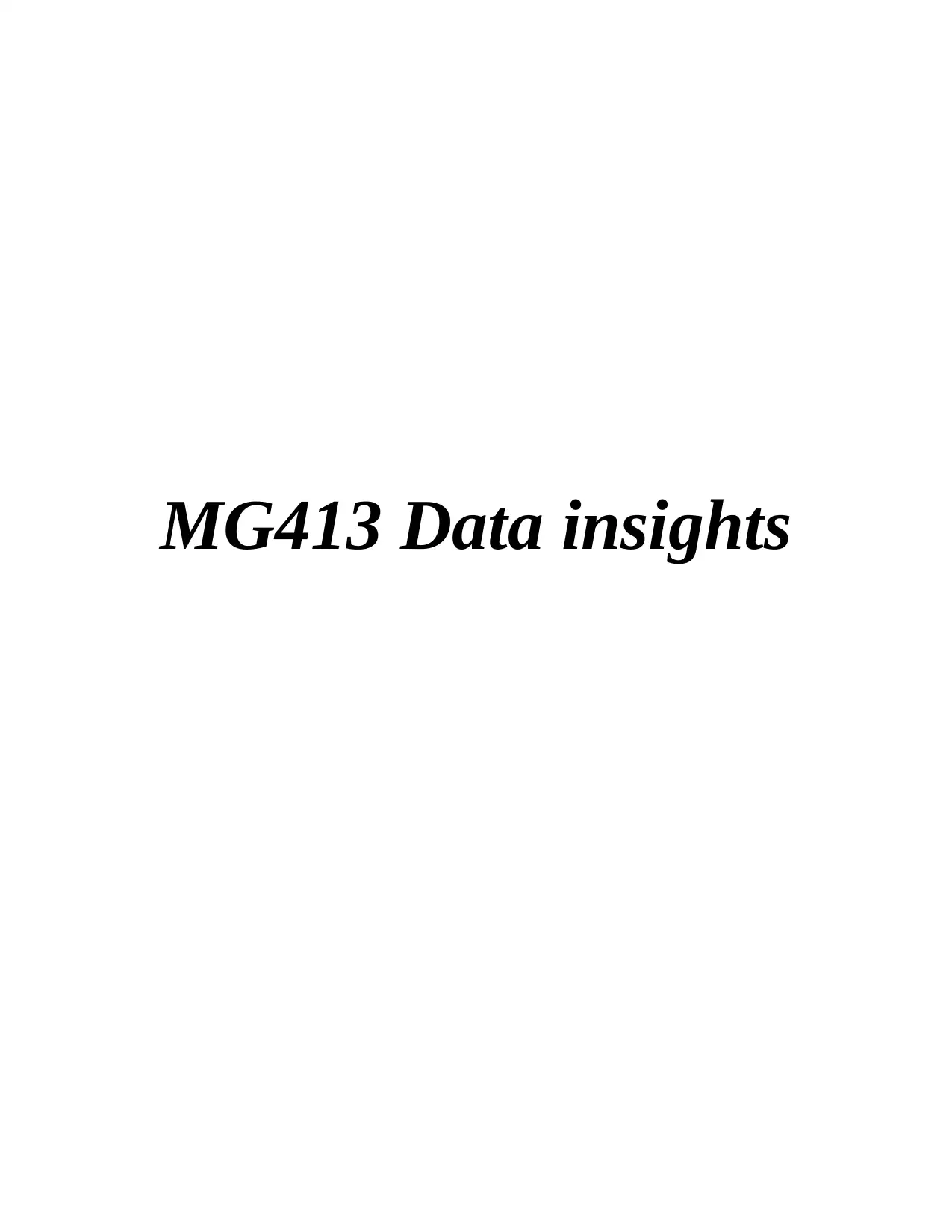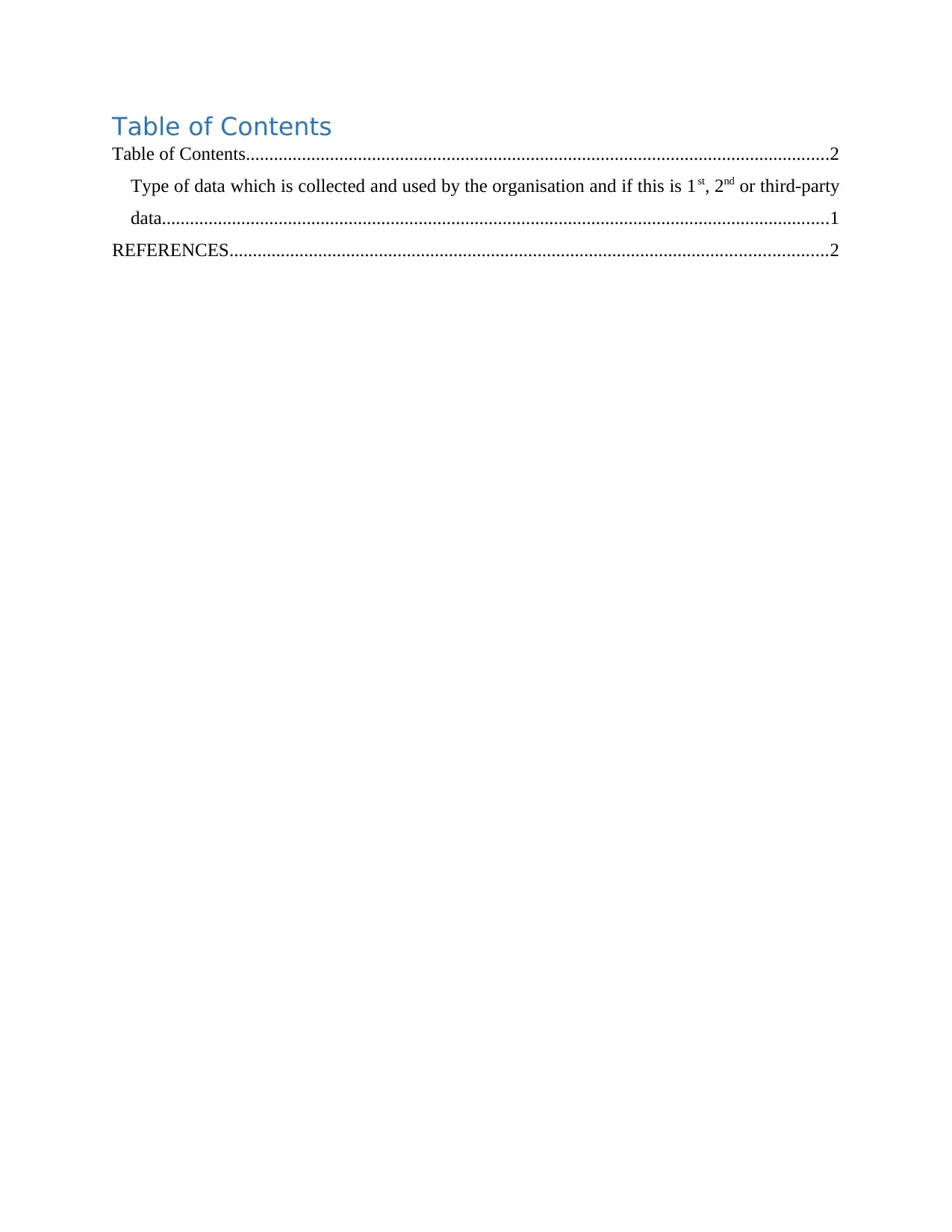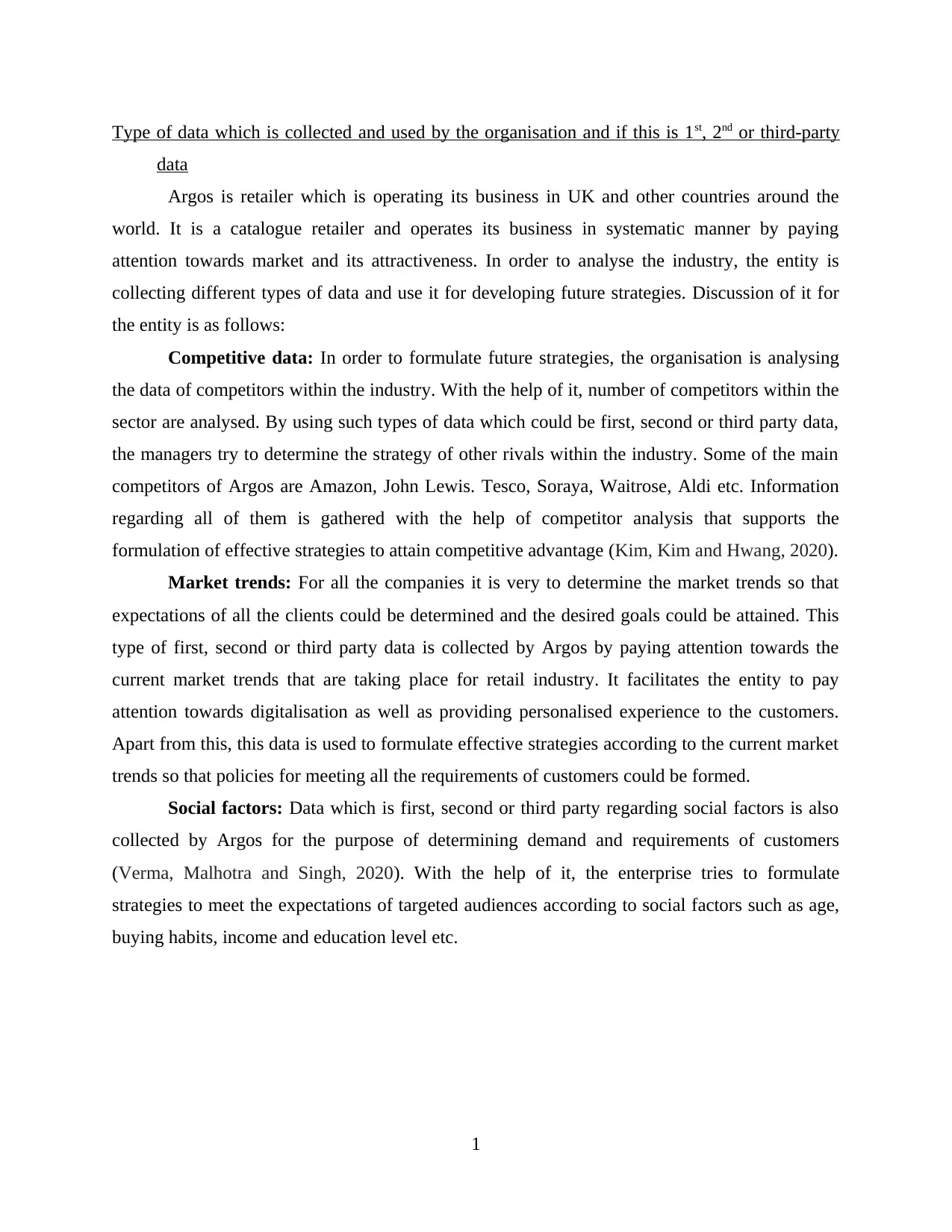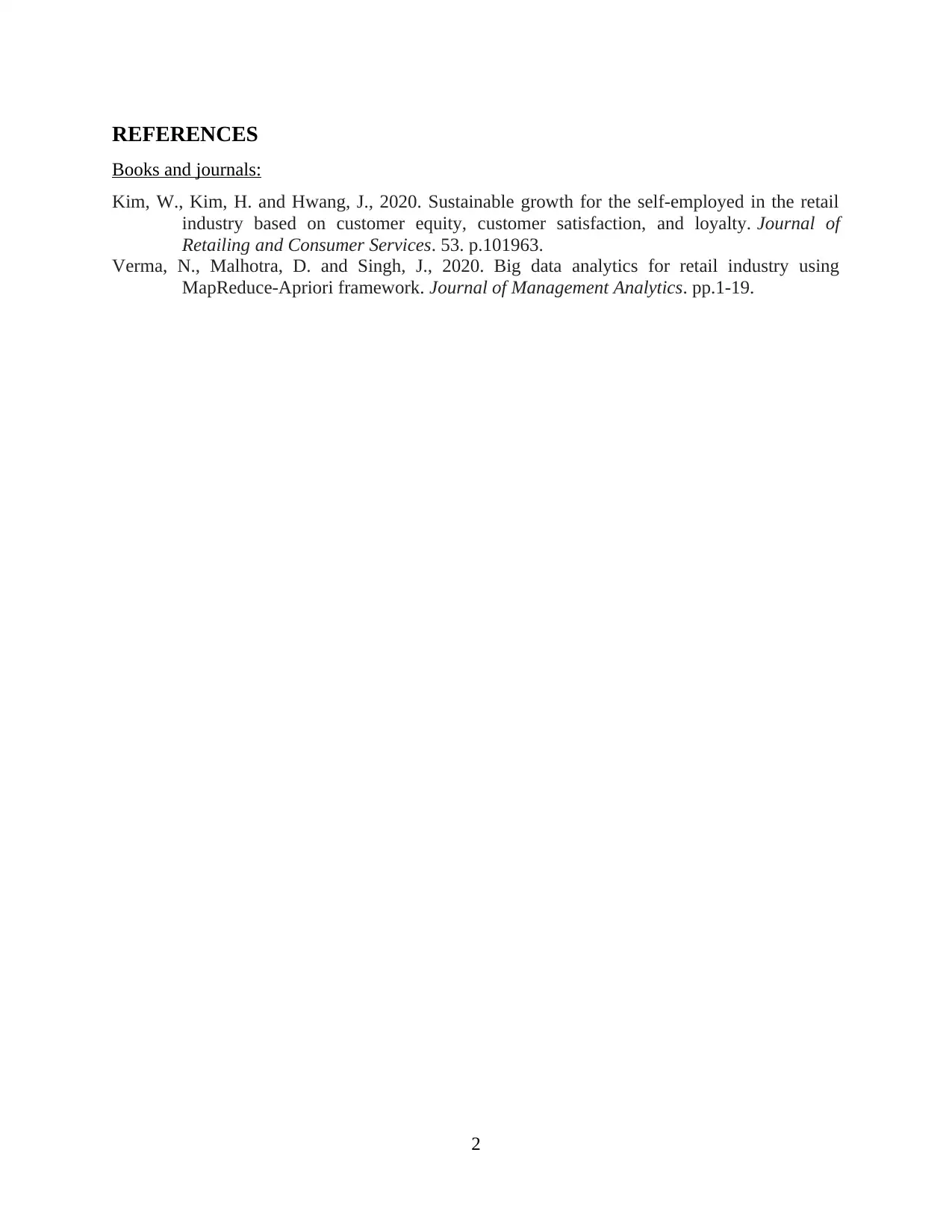MG413 - A Report on Data Insights: Data Collection and Usage at Argos
VerifiedAdded on 2023/01/05
|4
|527
|48
Report
AI Summary
This report examines the data collection and usage practices of Argos, a UK-based retailer, to gain valuable business insights. It identifies three primary data categories: competitive data, market trends, and social factors. Argos utilizes competitive data to analyze rivals like Amazon and Tesco, informing their strategies for competitive advantage. Market trend data helps Argos adapt to digitalization and personalize customer experiences. Social factor data, encompassing demographics and buying habits, enables targeted marketing and customer requirement fulfillment. By leveraging first, second, and third-party data sources across these areas, Argos aims to optimize strategies and meet customer expectations effectively. Desklib provides access to this report and other solved assignments for students.
1 out of 4







![[object Object]](/_next/static/media/star-bottom.7253800d.svg)